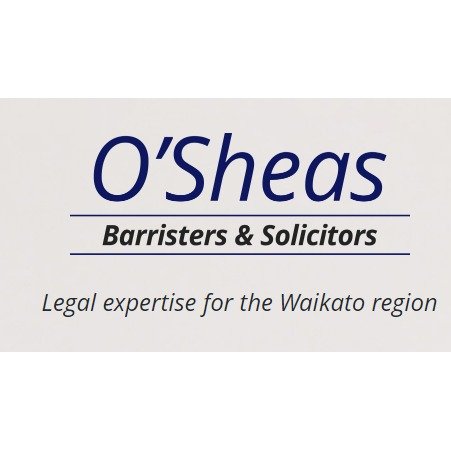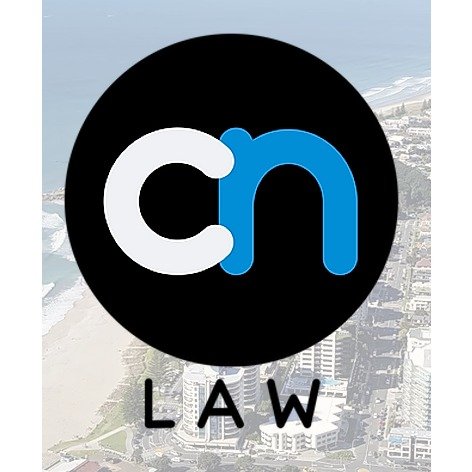Best Landlord & Tenant Lawyers in New Zealand
Share your needs with us, get contacted by law firms.
Free. Takes 2 min.
Free Guide to Hiring a Real Estate Lawyer
Or refine your search by selecting a city:
List of the best lawyers in New Zealand
About Landlord & Tenant Law in New Zealand
Landlord and Tenant law in New Zealand is primarily governed by the Residential Tenancies Act 1986. This legislation provides the framework for relationships between landlords and tenants, ensuring that both parties understand their rights and responsibilities. The law covers various important aspects, including rent management, dispute resolution, maintenance, and termination of tenancies. The aim is to maintain a fair and balanced relationship that protects the interests of both landlords and tenants while promoting harmonious living conditions.
Why You May Need a Lawyer
There are several situations where individuals may require legal assistance regarding landlord and tenant issues. Some common scenarios include:
- Disputes over rental payments or arrears.
- Eviction processes and understanding legal procedures.
- Disagreements over property maintenance or damage responsibilities.
- Clarification of rights and obligations under tenancy agreements.
- Dealing with unlawful entry or breaches of privacy.
- Termination of tenancy disagreements.
- Interpreting and applying tenancy law changes.
- Resolving issues of discrimination or harassment within a tenancy context.
Engaging a lawyer can help navigate these complexities and ensure that legal rights are protected.
Local Laws Overview
Key aspects of local laws relevant to Landlord and Tenant in New Zealand include:
- Tenancy Agreements: These are legally binding documents that define the terms of the tenancy. They can be either written or verbal, though written agreements offer better protection.
- Rent: Legislation details how rent should be reviewed and increased, along with procedures for dealing with overdue rent.
- Bond: The tenant usually pays a bond equivalent to up to four weeks’ rent, which must be lodged with Tenancy Services.
- Maintenance and Repairs: Landlords are responsible for maintaining the property in a reasonable state of repair, while tenants must keep it clean and notify the landlord of any damages.
- Tenancy Tribunal: This is a judicial body that resolves disputes between landlords and tenants.
- Termination of Tenancy: There are specific procedures and notice periods for ending a tenancy, varying if a tenancy is fixed-term or periodic.
Frequently Asked Questions
What is the maximum amount a landlord can charge for a bond?
The maximum bond a landlord can charge is equivalent to four weeks’ rent.
Can a landlord increase the rent whenever they like?
No, there are legal limitations on when and how often rent can be increased. Generally, rent cannot be increased within 12 months of the tenancy commencing or the last increase.
Who is responsible for repairs to the rental property?
Landlords must ensure the property is maintained in a reasonable state of repair, while tenants must notify landlords of needed repairs and maintain cleanliness.
What happens if a tenant doesn't pay rent on time?
If a tenant is in arrears, the landlord can issue a 14-day notice to remedy the situation. Persistent non-payment may lead to termination proceedings through the Tenancy Tribunal.
How much notice must a tenant give to end a periodic tenancy?
Tenants must provide at least 28 days’ notice in writing to end a periodic tenancy.
Can a landlord access the property without the tenant's consent?
Landlords must give tenants at least 48 hours' notice before visiting for inspections, and 24 hours for repairs or maintenance, except in emergencies.
Is subletting allowed without permission?
Tenants must seek the landlord's written consent to sublet or transfer the tenancy to another party.
What can a tenant do if the landlord is not fulfilling their obligations?
Tenants can issue a 14-day notice to remedy, and if unresolved, apply to the Tenancy Tribunal for further action.
Are pets allowed in rental properties?
Pet policies vary based on the tenancy agreement. Tenants should seek landlord approval before bringing pets onto the property.
What is a fixed-term tenancy?
A fixed-term tenancy lasts for a set period as specified in the tenancy agreement. It cannot be ended early without mutual agreement or Tribunal intervention.
Additional Resources
For further assistance, consider consulting the following resources:
- Tenancy Services: A government body providing guidance and dispute resolution for tenancy-related matters.
- Community Law Centres: Offers free legal advice and services across numerous locations.
- Citizen's Advice Bureau: Provides advice on a wide array of topics, including tenancy issues.
- Law Society of New Zealand: Offers resources and can help locate a specialized lawyer.
Next Steps
If you need legal assistance in Landlord and Tenant matters, consider the following steps:
- Identify the Issue: Clearly define the problem or question you have related to your tenancy.
- Gather Documentation: Collect leases, agreements, correspondence, and any other relevant documents.
- Seek Initial Advice: Contact a local advisory service such as Citizens Advice Bureau for initial guidance.
- Find Legal Representation: If necessary, find a lawyer specializing in tenancy law. You can use the Law Society's directory to locate one near you.
- Prepare Your Case: Work with your lawyer to analyze your case and determine the best course of action.
By following these steps, you can ensure that your rights and responsibilities are fully understood and upheld under New Zealand's tenancy laws.
Lawzana helps you find the best lawyers and law firms in New Zealand through a curated and pre-screened list of qualified legal professionals. Our platform offers rankings and detailed profiles of attorneys and law firms, allowing you to compare based on practice areas, including Landlord & Tenant, experience, and client feedback.
Each profile includes a description of the firm's areas of practice, client reviews, team members and partners, year of establishment, spoken languages, office locations, contact information, social media presence, and any published articles or resources. Most firms on our platform speak English and are experienced in both local and international legal matters.
Get a quote from top-rated law firms in New Zealand — quickly, securely, and without unnecessary hassle.
Disclaimer:
The information provided on this page is for general informational purposes only and does not constitute legal advice. While we strive to ensure the accuracy and relevance of the content, legal information may change over time, and interpretations of the law can vary. You should always consult with a qualified legal professional for advice specific to your situation.
We disclaim all liability for actions taken or not taken based on the content of this page. If you believe any information is incorrect or outdated, please contact us, and we will review and update it where appropriate.
Browse landlord & tenant law firms by city in New Zealand
Refine your search by selecting a city.
















